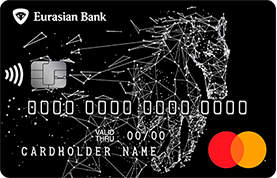Eurasian Bank warns that cases of fraud involving money transfer systems have become more frequent.
According to the data of the Center for Combating Cyber-crime, since the beginning of the year, 15.5 thousand crimes related to deceiving citizens via the Internet have been registered in Kazakhstan.
Eurasian Bank informs about the most common fraud schemes and about simple ways to protect personal data.
Calls on behalf of bank security officers or law enforcement agencies
During the conversation, the attackers notify about allegedly unauthorized, fraudulent transactions using bank accounts or making loans in the name of potential victims, that is, to the person they called.
In this case, it is necessary:
- interrupt the conversation and inform the police.
- not to give in to panic, because first of all scammers try to instill fear and disorient the interlocutor, get all possible information on bank accounts and incoming SMS-messages.
- not to install any applications, especially for remote control of your devices (AnyDesk, TeamViewer, RustDesk, HopToDesk, etc.);
Sale of goods and services on social networks and trading platforms
This type provides for the imaginary sale of various kinds of goods and services. As a rule, these are cars, household appliances, furniture, wearables, accessories, consumer goods, food, etc. The goal of the attackers is to gain benefits. In every way they lead to and ask to transfer funds as a prepayment.
It is better to refuse such transactions until you see the product with your own eyes, otherwise you may be left without your savings.
Using phishing sites
This type of fraud is aimed at collecting personal data and banking information. Such sites may look exactly like real sites, but are actually fraudulent.
For example, you posted an ad on one of the sites, and a previously unknown person turns to you and asks you to arrange delivery. After that, he sends a link for registration. By clicking on the link, you will be asked to enter your data, that is, full name, year of birth, bank card number, expiration date and CVV code. After filling in, the funds are debited from the bank card.
Investing in crypto-currencies, securities, etc.
With the advent of new opportunities and technologies, the movement of crypto-currencies is actively developing. Be careful when investing in crypto-currencies, securities, etc. Some attackers may offer to make money by buying and selling stocks or crypto-currencies, but in fact they are trying to cheat.
For example, they place ads on social networks where they offer to earn money by buying and selling stocks or crypto-currencies. Then the attackers call up the victim and appear to be an employee of a National company or another organization allegedly providing broker services. They lure you with lucrative offers, persuade you to deposit money, for a start small amounts. After a few days, the invested funds are returned with the allegedly earned benefit. After that, they ask to deposit more significant amounts and disappear.
Calls to senior citizens
The attackers introduce themselves as law enforcement officers and report that their loved ones were involved in a criminal case.
Fraudsters convince their interlocutors that an incident has occurred for which their loved ones may find themselves in the orbit of criminal prosecution. Therefore, in order to be released from criminal liability, money is needed, which their employee allegedly have to pick up. In turn, they send so-called “drops”, and those already, heading along a given route, receive funds from the victims and transfer them to the attackers.
Be careful when receiving calls from alleged law enforcement officers. Do not fall for such tricks and report it to the police.





